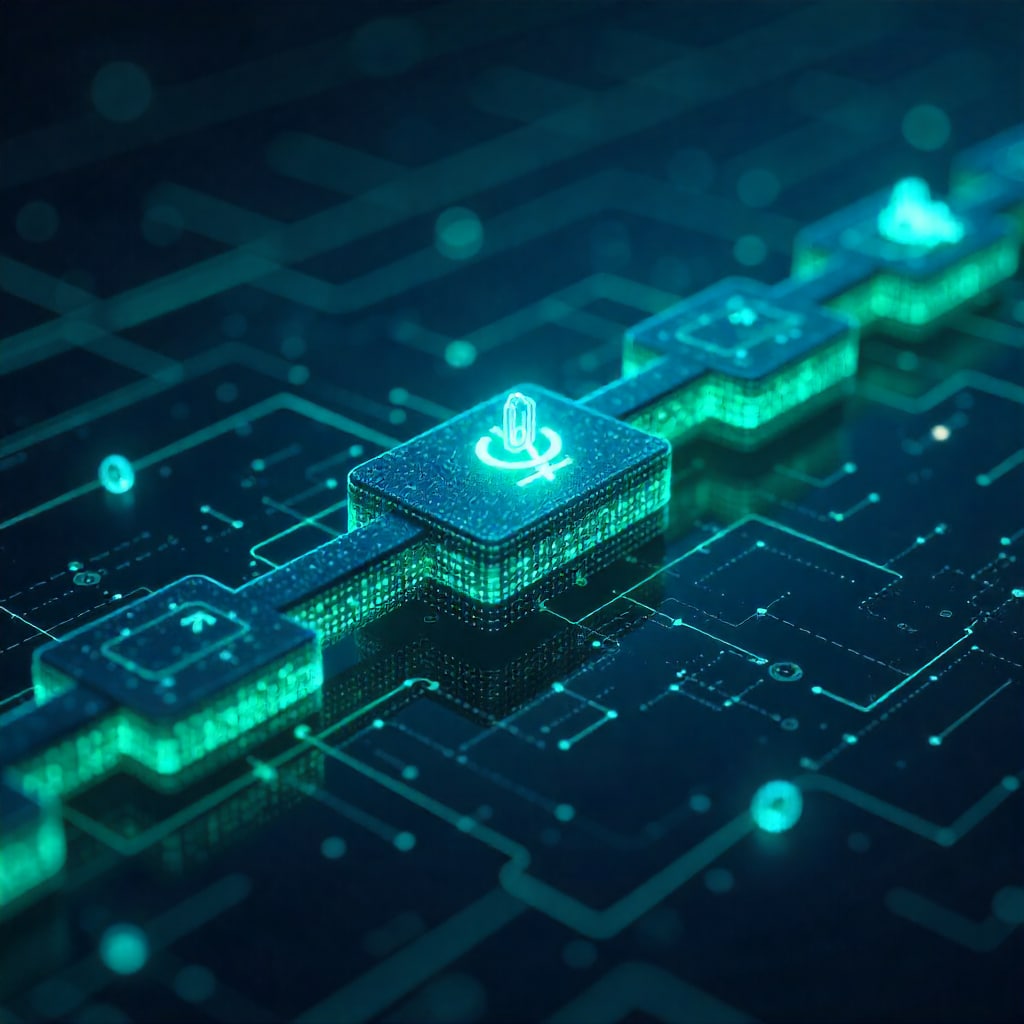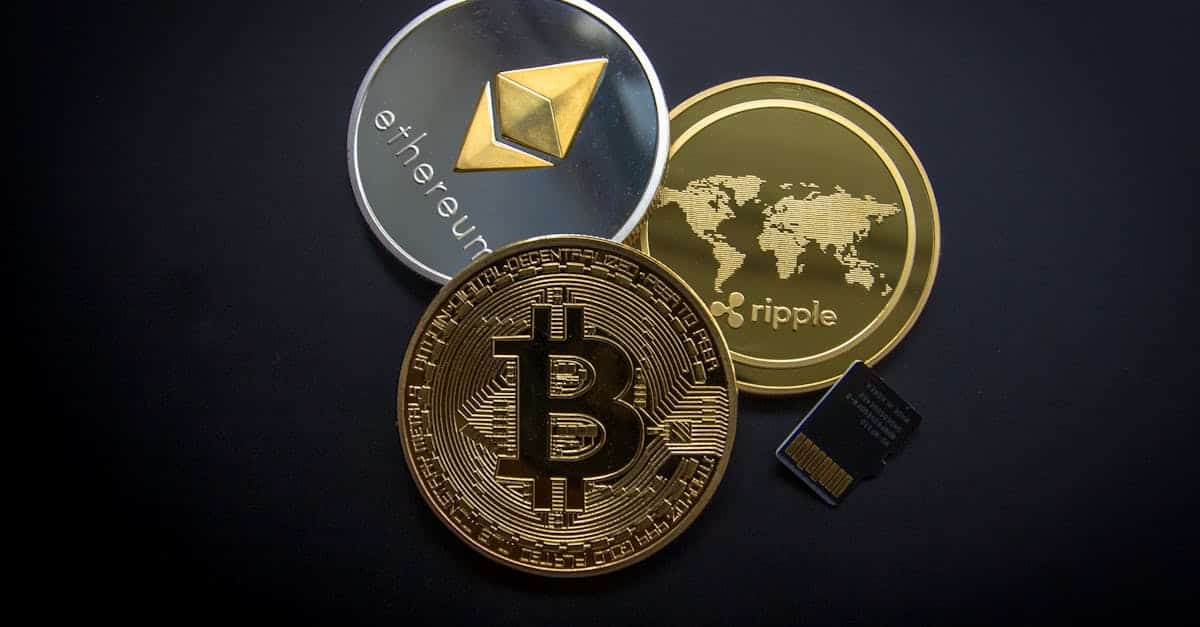Delve into the enigmatic realm of blockchain engineering and unlock the mysteries that lie within. In a rapidly evolving technological landscape, understanding the role and significance of a blockchain engineer is crucial for navigating the complexities of this innovative field.
Embark on a journey that promises to illuminate the path to becoming a proficient blockchain engineer, providing insights into the skills, challenges, and opportunities that await. Discover the secrets that will empower you to harness the potential of blockchain technology and shape the future with confidence and expertise.
What is a Blockchain Engineer?
Imagine a blend of technical wizardry and innovative problem-solving skills – that is what encapsulates the essence of a blockchain engineer. These professionals are at the forefront of revolutionizing digital transactions, utilizing their expertise to develop secure, decentralized systems that underpin cryptocurrencies and various other applications.
Blockchain engineers are the architects behind the intricate networks of distributed ledgers that ensure transparency and immutability in transactions. Through their mastery of cryptography, data structures, and consensus algorithms, they design and implement robust solutions that redefine trust in the digital realm. Their work extends beyond coding; it embodies a commitment to reshaping traditional paradigms with cutting-edge technology.
In essence, a blockchain engineer is a visionary trailblazer who navigates the complex terrain of decentralized systems with finesse and foresight. They harness their technical prowess to build resilient platforms that empower individuals and organizations alike. As pioneers in this evolving landscape, blockchain engineers embody innovation, integrity, and an unwavering dedication to shaping a future where trust is inherent in every transaction.
The Evolution of Blockchain Technology
Blockchain technology has undergone a remarkable evolution since its inception. Originally created as the underlying technology for Bitcoin, it has since expanded into various industries beyond cryptocurrency. The early days of blockchain were marked by skepticism and uncertainty, with many dismissing it as a passing trend. However, its potential for secure and transparent transactions soon captured the attention of innovators worldwide.
As blockchain technology matured, new iterations emerged to address scalability and privacy concerns. The development of smart contracts on platforms like Ethereum revolutionized the way agreements are executed, eliminating the need for intermediaries in transactions. This shift towards decentralized applications opened up a world of possibilities for industries such as finance, healthcare, and supply chain management.
Today, blockchain technology continues to evolve rapidly with advancements in consensus algorithms and interoperability between different blockchains. Projects exploring proof-of-stake mechanisms and cross-chain communication are paving the way for a more efficient and interconnected decentralized ecosystem. The evolution of blockchain is not just about technological progress but also about fostering trust, transparency, and inclusivity in our digital interactions.
Skills and Qualities of a Successful Blockchain Engineer
Blockchain technology is complex, requiring a unique set of skills and qualities for engineers to excel in this field. One crucial attribute is strong problem-solving skills, as engineers must navigate intricate blockchain networks and devise innovative solutions to challenges that arise.
Attention to detail is paramount for successful blockchain engineers. The ability to meticulously analyze code, identify errors, and ensure the security of transactions is essential in this role. Precision and accuracy are key components in maintaining the integrity of blockchain systems.
Effective communication skills are also vital for blockchain engineers. Collaborating with team members, conveying technical information clearly, and explaining complex concepts to non-technical stakeholders are all part of the job. Being able to articulate ideas concisely contributes to successful project outcomes.
How to Become a Blockchain Engineer
To embark on the journey of becoming a blockchain engineer, one must first acquire a solid foundation in computer science and programming. Proficiency in languages such as C++, Java, and Solidity is essential, as these are commonly used in blockchain development. Additionally, gaining knowledge of cryptography and distributed computing principles will be advantageous in mastering the intricacies of blockchain technology.
Furthermore, hands-on experience with blockchain platforms such as Ethereum, Hyperledger, or Corda is crucial for aspiring engineers. Building projects on these platforms will not only enhance technical skills but also provide valuable insights into the practical application of blockchain technology. Engaging in open-source projects and collaborating with peers in the blockchain community can also foster growth and learning.
In addition to technical skills, cultivating problem-solving abilities and a strong attention to detail is paramount for success in this field. Blockchain engineers must possess a keen analytical mindset to identify vulnerabilities in smart contracts and ensure the security of decentralized systems. Continuous learning and staying updated on industry trends through workshops, conferences, and online resources are indispensable for staying at the forefront of innovation as a blockchain engineer.
Education and Training Options for Aspiring Blockchain Engineers
Embarking on a journey to become a blockchain engineer requires a solid foundation of knowledge and skills. Pursuing a relevant education is essential in this rapidly evolving field. While there are multiple paths to becoming a blockchain engineer, obtaining a degree in computer science, information technology, or related fields can provide a strong basis for understanding the underlying principles of blockchain technology.
Additionally, specialized courses and certifications focused on blockchain can offer valuable insights and hands-on experience. Platforms like Coursera, Udemy, and edX offer online courses that cover various aspects of blockchain technology, from the basics to advanced topics like smart contracts and decentralized applications. These courses not only enhance technical skills but also demonstrate commitment and dedication to potential employers.
Furthermore, participating in hackathons, workshops, and industry conferences can expose aspiring blockchain engineers to real-world challenges and opportunities for collaboration. Networking with professionals in the field can lead to mentorship opportunities and valuable connections that may open doors to internships or job placements in companies at the forefront of blockchain innovation.
Getting Started in the Blockchain Industry
Exploring the Fascinating World of Blockchain
The first step to embarking on a career in the blockchain industry is to immerse yourself in the fascinating world of blockchain technology. Take the time to understand how blockchain works, its core principles, and its potential applications across various industries. This foundational knowledge will serve as a solid base for your journey into this innovative field.
Networking and Building Connections
Networking is a crucial aspect of getting started in the blockchain industry. Attend industry conferences, join online forums and communities, and connect with professionals already working in the field. Building relationships with seasoned experts can provide valuable insights, mentorship opportunities, and potential job leads that can kickstart your career as a blockchain engineer.
Exploring Entry-Level Opportunities
When starting out in the blockchain industry, consider exploring entry-level opportunities such as internships, apprenticeships, or junior positions at blockchain companies or startups. These roles can offer hands-on experience, exposure to real-world projects, and an opportunity to learn from experienced professionals. Embrace these learning opportunities as stepping stones towards achieving your long-term career goals.
The Day-to-Day Life of a Blockchain Engineer
Embark on a journey into the daily routine of a blockchain engineer, where innovation and problem-solving intertwine to shape the digital landscape.
Morning Rituals:
As the sun rises, a blockchain engineer starts their day by reviewing code, analyzing data structures, and collaborating with team members to refine project goals. This quiet time allows for focused concentration before diving into the day’s challenges.
With a cup of coffee in hand, the engineer delves into debugging code, optimizing algorithms, and exploring new technologies that could enhance their blockchain solutions. Each line of code written is like crafting a piece of art, contributing to the intricate tapestry of decentralized systems.
Midday Exploration:
During midday meetings and brainstorming sessions, blockchain engineers engage in lively discussions about potential applications for their technology. Ideas flow freely as they explore innovative ways to integrate blockchain into various industries, from finance to healthcare.
Lunch breaks are not just for nourishment but also for networking with colleagues and sharing insights on the latest trends in blockchain development. Collaboration is key in this fast-paced environment where knowledge is power and collective brainstorming leads to groundbreaking solutions.
Afternoon Challenges:
In the afternoon, challenges arise as unexpected bugs surface or scalability issues need to be addressed. The blockchain engineer navigates these hurdles with poise and determination, leveraging their expertise to find creative solutions that push the boundaries of what is possible.
As the workday winds down, reflection sets in as the engineer looks back on their accomplishments – another line of code written, another problem solved. The sense of fulfillment that comes from overcoming obstacles fuels their passion for innovation and drives them to continue pushing the limits of blockchain technology.
Challenges and Opportunities in the Field of Blockchain Engineering
Embracing Innovation: Blockchain engineering presents a unique set of challenges, primarily due to its rapid evolution. Staying updated with the latest technological advancements and trends is crucial. However, these challenges also offer exciting opportunities for creative problem-solving and innovation in shaping the future of decentralized systems.
Regulatory Uncertainty: The regulatory landscape surrounding blockchain technology remains ambiguous in many jurisdictions. Navigating this uncertainty poses challenges for blockchain engineers as they strive to develop compliant solutions. Nevertheless, this presents an opportunity for collaboration between industry professionals and regulators to establish clear frameworks that foster innovation while ensuring accountability.
Cybersecurity Concerns: With the increasing reliance on blockchain technology for secure transactions, cybersecurity threats continue to evolve. Blockchain engineers face the challenge of constantly enhancing security measures to protect against potential breaches. However, these challenges offer opportunities to develop robust encryption techniques and enhance network resilience, contributing to a safer digital ecosystem.
Tips for Success as a Blockchain Engineer
Continuous Learning and Adaptability: In the fast-paced world of blockchain technology, staying updated on the latest trends and advancements is crucial. Embrace a growth mindset and be willing to adapt to new tools, languages, and frameworks. By continuously learning and expanding your skill set, you position yourself for long-term success in this dynamic field.
Attention to Detail: Precision is paramount in blockchain engineering, as even a small error can have significant consequences. Develop a keen eye for detail and practice meticulous coding practices to ensure the integrity and security of blockchain systems. By paying close attention to every line of code, you demonstrate your commitment to excellence.
Collaboration and Communication: Effective teamwork is essential in the collaborative environment of blockchain development. Cultivate strong communication skills to convey complex technical concepts clearly and work harmoniously with colleagues from diverse backgrounds. By fostering positive relationships and actively participating in team projects, you harness the power of collective intelligence for innovative solutions.
Connecting with Other Blockchain Professionals
Building a network of like-minded individuals within the blockchain industry is essential for growth and development. By connecting with other blockchain professionals, you can exchange ideas, collaborate on projects, and stay updated on the latest trends in the field. Networking provides a valuable opportunity to learn from others’ experiences and expand your knowledge base.
One effective way to connect with other blockchain professionals is by attending industry conferences and events. These gatherings bring together experts, innovators, and enthusiasts from around the world, providing a fertile ground for networking. Engage in conversations, participate in panel discussions, and seek out opportunities to connect with individuals whose work inspires you.
Another avenue for building connections is through online platforms such as LinkedIn, forums, and social media groups dedicated to blockchain technology. These virtual spaces allow you to engage with a broader community of professionals beyond geographical limitations. By joining relevant groups and participating in discussions, you can forge meaningful relationships and stay informed about industry developments.
Conclusion
As we conclude our exploration into the world of blockchain engineering, it becomes evident that this field holds immense potential for innovation and growth. The dynamic nature of blockchain technology ensures that there will always be new challenges to overcome and opportunities to seize, making it an exciting career path for those passionate about cutting-edge technology.
Embracing the ever-evolving landscape of blockchain engineering requires a mindset of continual learning and adaptation. By staying curious, proactive, and open to collaboration with fellow professionals in the field, aspiring blockchain engineers can forge a rewarding and impactful career in shaping the future of decentralized systems.
[hurrytimer id=”13681″]



